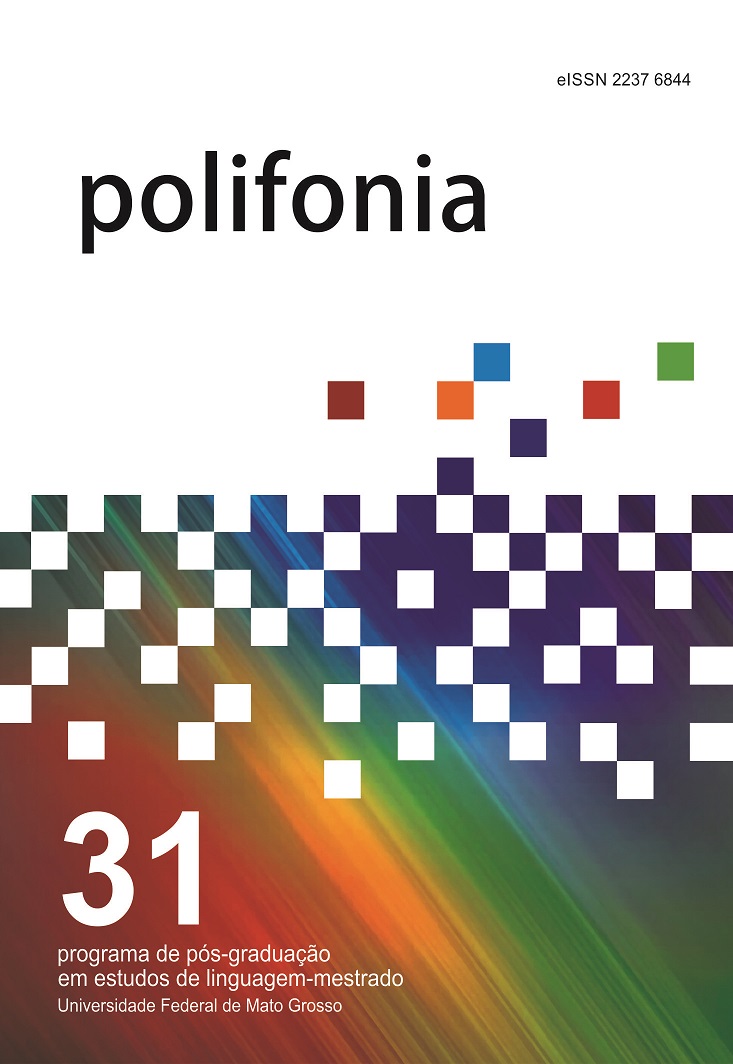“SOBRE BURROS E VEADOS”: POSIÇÕES DISCURSIVAS CONTRADITÓRIAS
Resumo
Neste estudo analisa-se a matéria jornalística “Sobre burros e veados”, assinada por Helder Caldeira. Essa matéria circulou na mídia, no primeiro semestre de 2011, por ocasião da ruidosa polêmica em torno do livro didático de língua portuguesa Por uma vida melhor, distribuído gratuitamente pelo Ministério de Educação aos estudantes da Educação de Jovens e Adultos. Além do caso do livro didático, a matéria comenta também o caso de um panfleto batizado derrisoriamente de Kit Anti-Gay, ambos protagonizados pela “classe política” naquele momento da história brasileira e transformados em fatos noticiosos pela mídia. Como linguista, não se pôde deixar de observar, já no primeiro contato com o texto, que, ao se referir aos “burros”, o enunciador assume uma posição purista, e, aos “veados”, uma posição pluralista. A percepção dessa discrepância nos gestos de interpretação de um caso e outro motivou a realização deste estudo que se teceu com fios da análise de discurso.
PALAVRAS-CHAVE: análise de discurso, interdiscurso, discursos sobre língua, discursos sobre sexualidade
“ABOUT DONKEYS AND DEERS”: CONTRADICTORY DISCURSIVE POSITIONS
ABSTRACT: In this study the newspaper article Sobre burros e veados[1](About donkeys and deers) signed by Helder Caldeira is analysed. The article circulated in the media in the first part of 2011 at the time of the raging controversy surrounding the Portuguese language textbook Por uma vida melhor (For a better life), distributed freely by the Ministry of Education to the youth and adult students who did not complete education at the right age. In addition to the textbook case, the article discusses also the case of a pamphlet named ludicrously Kit Anti-Gay, both cases acted out by the political class in that moment of the Brazilian history and transformed into news facts by the media. As a linguist, one could not help notice at the first contact with the text that by using the term “donkeys” the enunciator takes on a purist position and by referring to “deers” takes on a pluralist position. The perception of this discrepancy in the gestures of interpretation of one case and another motivated the development of this study that was weaved with the thread of the discourse analysis.
KEYWORDS: discourse analysis, interdiscourse, discourses on languages, discourses on sexuality
[1] “Burros” in Brazilian Portuguese refers to the animal “donkey” but is also used to refer to people as stupid; “veados” refers to the animal “deer” but is also a pejorative word for gay men.



